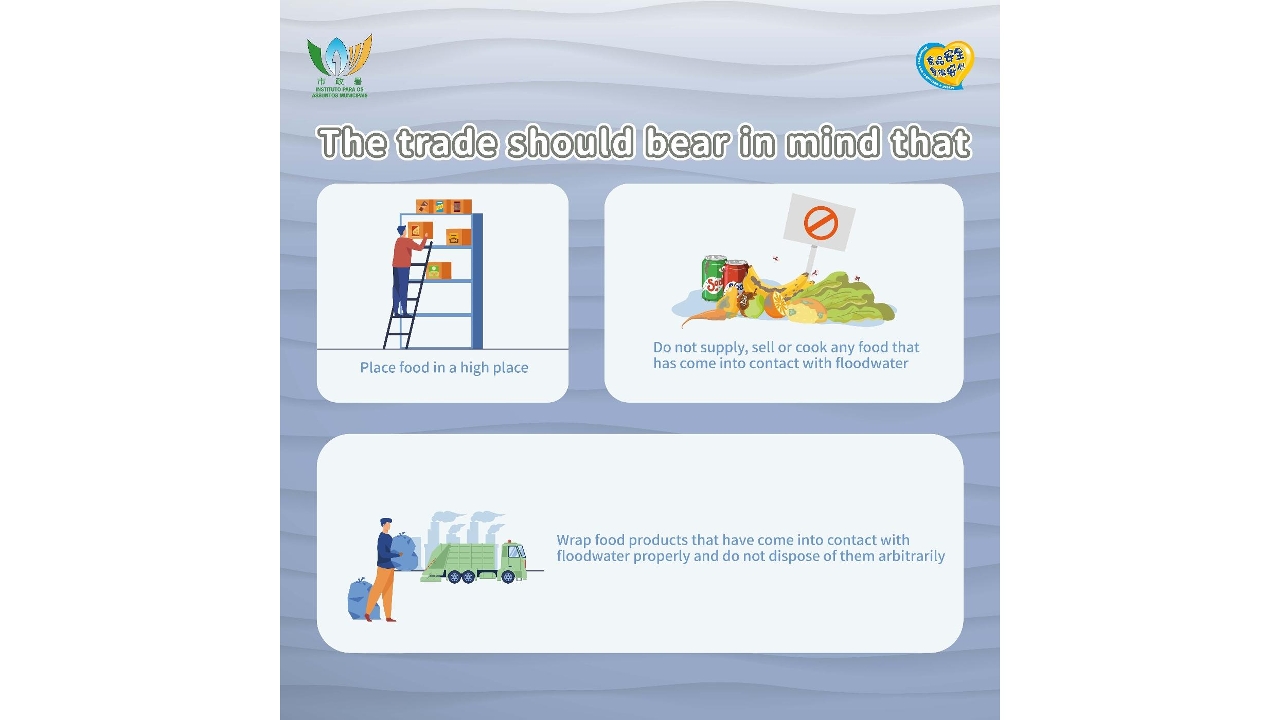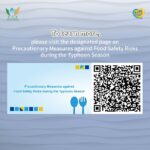
As Typhoon “Yagi” is approaching Macao, which may cause storm surge, the Municipal Affairs Bureau (IAM) calls on persons in charge of establishments of food production and business located in low-lying areas to pay attention to the weather updates issued by the Macao Meteorological and Geophysical Bureau, take adequate measures to prevent floods and power outage, and properly protect their food products and goods to avoid contamination.
When the food and the establishments are affected by floods or power outage, the businesses must not supply and sell the abandoned, rotten or spoiled food for the consumption of others; otherwise they may be prosecuted for violating the “Food Safety Law”. Conviction for such violations may result in a fine up toMOP600,000 or imprisonment for up to five years. They should also take appropriate cleaning, disinfecting and follow-up measures to prevent food poisoning induced by food contamination or deterioration of environmental hygiene. Besides, the food sector should dovetail well with the government’s food safety efforts by taking the initiative to seal the damaged goods and transport them directly to the designated locations for destroying the spoiled food as a result of floods or power outage, so that they would not be picked up by others and pose food safety and public health hazards.
IAM has complied the “Handbook on Safety of Drinking Water and Food for Disaster Relief” and a series of educational videos and uploaded them on the dedicated page on “Precautionary Measures against Food Safety Risks during the Typhoon Season” of the website of Food Safety Information (www.foodsafety.gov.mo), providing suggestions and guidelines on the safety of drinking water and food, cleaning and disinfection, post-disaster maintenance, etc. to assist various sectors in jointly carrying out proper prevention of food safety risks and hygiene-related relief work.






